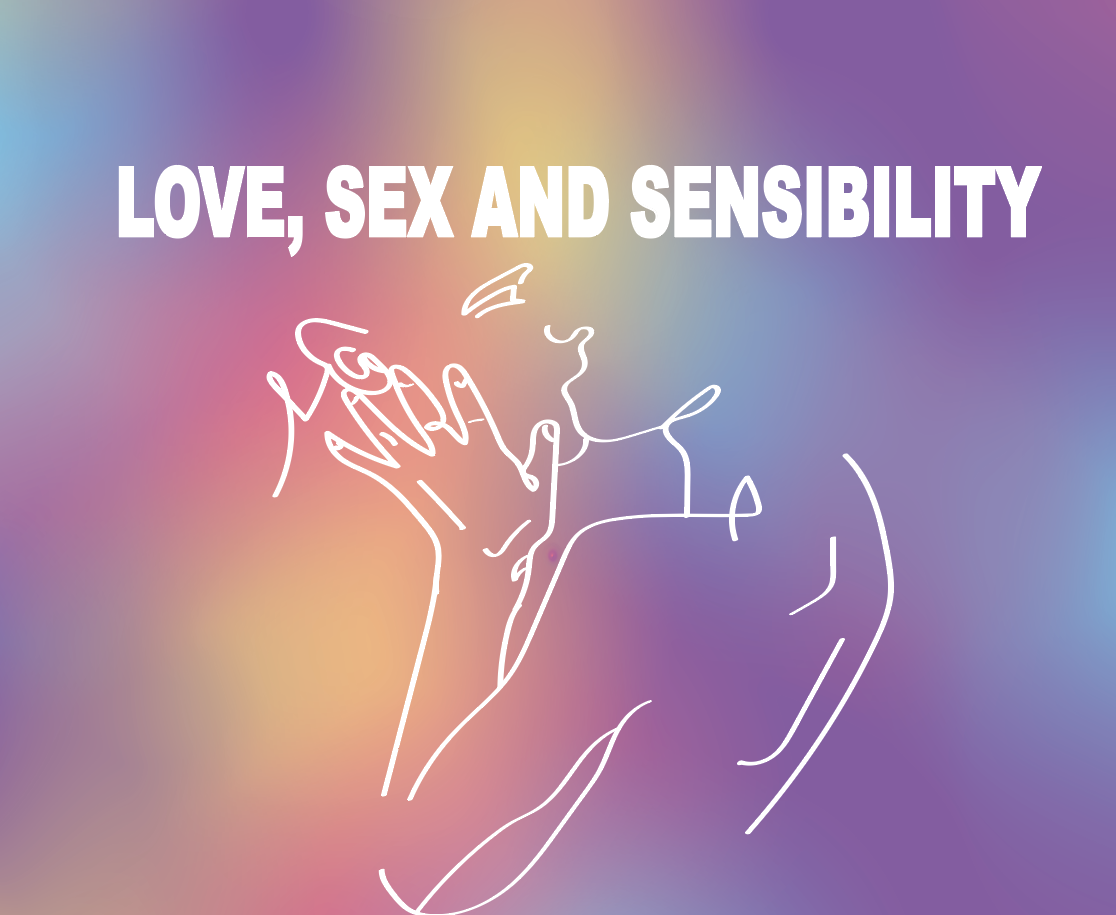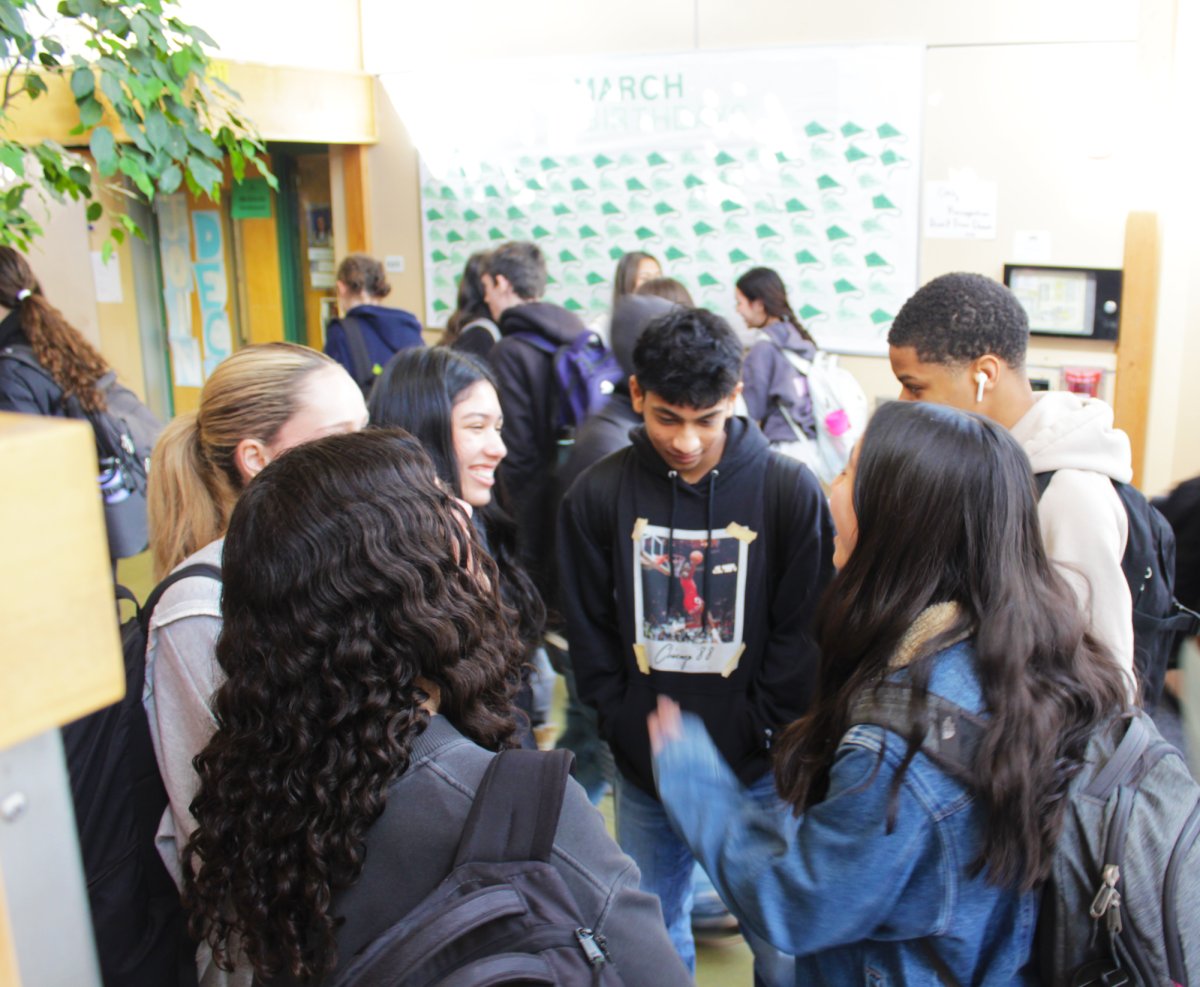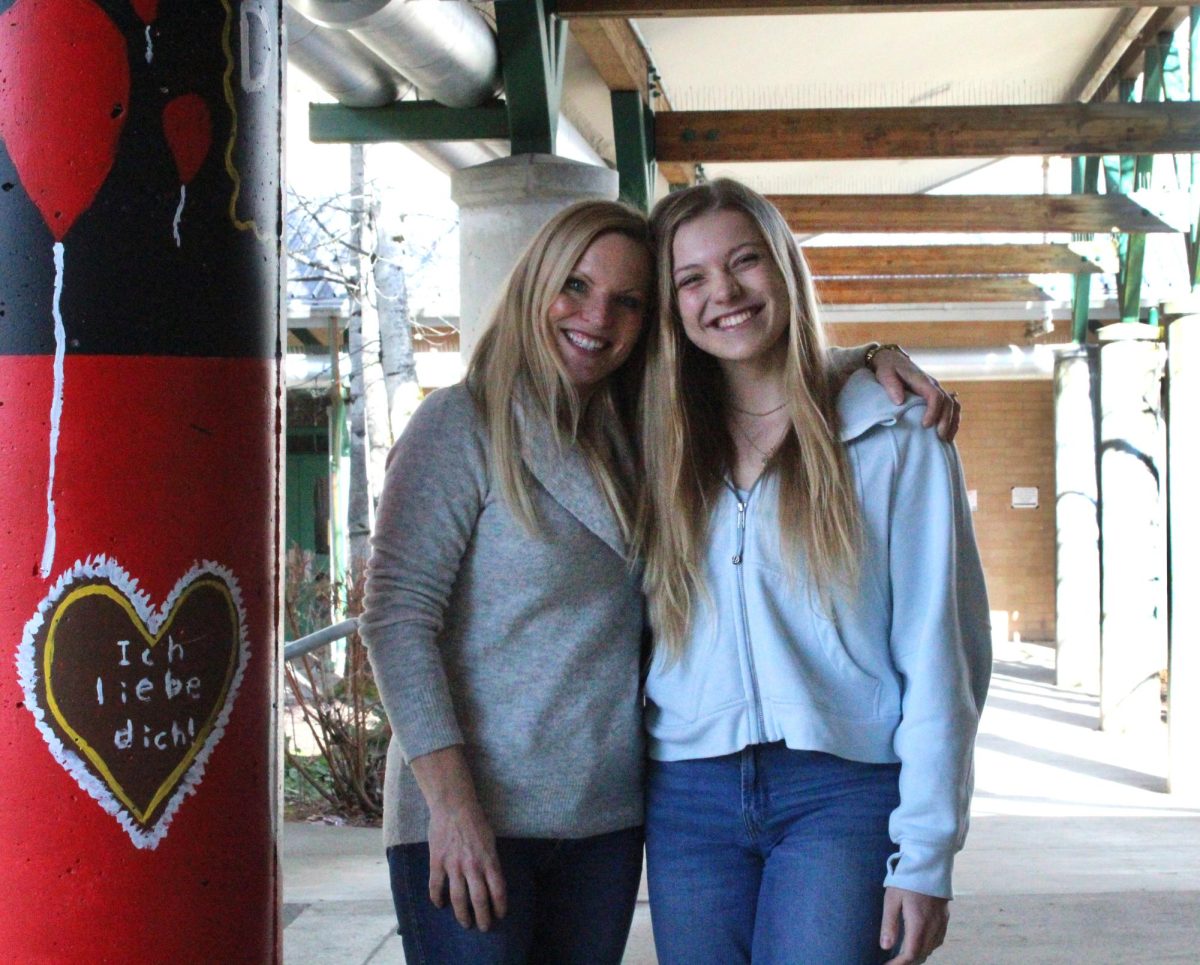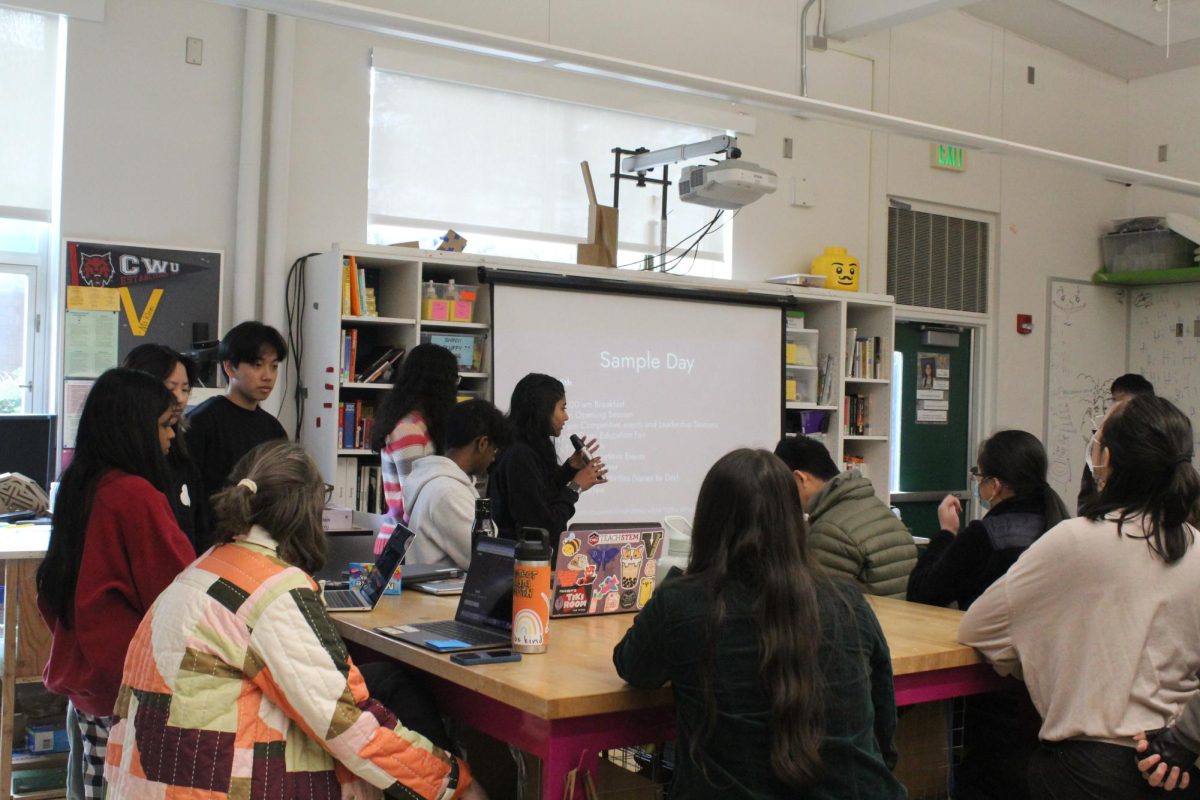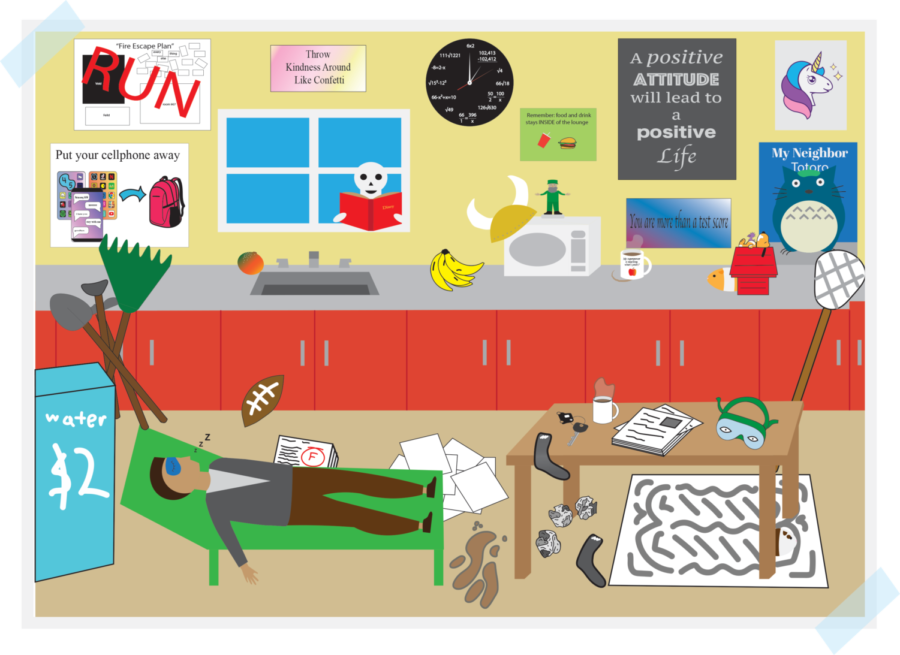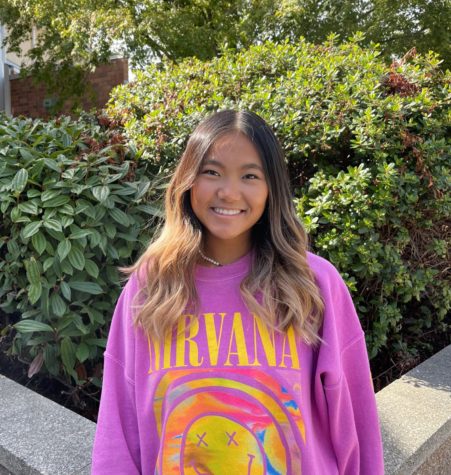Sex-pectations
Walking down the hallways of nearly any public high school, chances are the average high school student will see several couples engaged in public displays of affection. Three students interviewed noted that public—and private—intimacy is a part of life most high schoolers have come to accept, but discussion about it remains somewhat taboo and there are double standards around sexual activity that can be hard to navigate.
The idea of virginity has been used to belittle and bully both male and female high school students in different ways. Junior Yamina Bordieau* said her experiences with coming forward about an intimate relationship were mostly negative.
“I don’t like using the word virginity because it perpetuates the concept that there is something to lose when you’re having sex for the first time,” Bordieau said. “When I had sex for the first time with a guy, I felt liberated. It was consensual and enjoyable,” said Bordieau. “But when I told my friends at the time about it, they began to shame me. Like I was less than who I was because I partook in a sexual activity and wasn’t ashamed of it. My partner was praised for having sex—he was just as excited about it as I was; but I was the only one labeled as a slut.”
The frustration lies in the double standard, said Bourdieu. She said she feels as though the double standard surrounding sex is unproductive.
“The female experience is demonized no matter what you choose to do, or what you choose not to do. There is some pedestal the opposite sex is put on when they decide to become sexually active and it’s counterintuituve,” said Bordieau. “This supports the narrative that sex should only be enjoyable for men.”
She said this mentality harms both parties and that putting pressure on people—telling them what they can or can’t do with their bodies—does not support sexual wellness or themovement towards sex positivitiy.
The sex positive movement does not inherently support the act of having sex, but moreso the healthy habits and communication that come with it. Aspects of sexual positivity include communication, access to contraceptives and medical professionals that support everyone, abstinent or not.
The sex positive movement also pushes for everyone to be clear on consent within sexual actions. The age of consent in Washington is 16, which means it is illegal for an idividual older than 18 to engage in sexual activities with someone who is 16 years of age or younger. Without consent, there is no sex; sex without consent is assault.
Junior Dave Sharpe* expressed that he, too, felt a societal pressure in terms of becoming sexually active.
“I definitely feel pressure internally and externally. I feel like I have to lose my virginity because then I’ll feel validated that I’m a man,” said Sharpe. “I don’t know why, but something inside me says that once I lose my virginity, then I’ll be validated and I’ll be normal. I also feel like the Internet portrays being a virgin as somewhat negative. It’s not a bad thing; it’s just how society is.”
But there is little pressure on male-presenting individuals to stay abstinent, said Sharpe, which contrasts with the mentality of the feminine sexual experience, according to Bordieau.
“These negative ideologies portrayed by our modern society manifest in young women and men, making them uncomfortable in their own sexuality,” said Bordieau.
On top of typical romantic or sexual relationships, the rise of dating apps have redefined how students view connection, according to senior Cathy Doris*. “Hook-up culture,” commonly defined as a culture that accepts and encourages casual and typically non-romantic sexual encounters, has become more popular since dating apps have risen in popularity.
“I think social media has placed a bad taste on the idea of sex and hook-ups. There is so much social pressure on you when it comes to losing your virginity,” said Doris. “Sex and all things related to sex are supposed to be fun. Of course, it’s important to be safe, but the only way that you are able to identify what you like and what you don’t like depends on your experiences.”
While dating apps require their users to be 18 and older, students interviewed said they use the platforms regardless. Doris said she enjoyed talking to, as well as interacting with, people she might not have met in real life.
Although casual sex can be something that feels comfortable to certain people, the emotional aspects of sexual activities can be draining to some. According to a study by psychologist Christopher Houck into adolescent sex, up to 23% of young research participants were left with negative emotions after their most recent sexual experience.
Communication between both individuals engaging in sexual activity is important, particularly around the emotional and physical effects. These choices can impact the way an individual will approach future relationships, researchers at University of Texas say.
“Being comfortable in talking about sex and intimate relationships is important to sexual wellness, as well as communication between partners,” said Doris.
But the three students interviewed generally supported sexual relationships among high school students, as long as everyone involved is respected and consents.
“At the end of the day, your body is yours and yours alone,” said Bordieau. “So if you’re having comfortable and consensual sex that makes you happy, do what’s best for you.”
Long-lasting love
According to clinical psychologist Melanie Greenburg, long-term relationships occur when both partners are confident and self-assured. But during high school, a time of inconsistency, puberty and overwhelming academic and social responsibilities, this can be difficult for students to achieve.
Senior Fiona Holdaway said she feels pressure on her relationship with her boyfriend, senior Riley Heike, at times. After being together two and a half years, from sexual pressures to gender roles, Holdaway said that their relationship can have uncommunicated expectations from their peers and the media.
“Social media is a big factor that plays into [the sexual pressures], and even when people at school talk about sex,” said Holdaway.
With their commitment to school and sports, finding time to balance their relationship with their busy schedules can be difficult. Holdaway said that she feels as if they are both overcommitted, but she has still found ways to prioritize their relationship.
“I’m very organized and schedule oriented, but he’s not. I make him make a schedule at the beginning of the week, and then ask Riley when we are going to hang out and what time,” Holdaway said.
But not all couples share the same system. Many others have set boundaries for separating their school lives and their romantic lives. Senior Emerson Ellis said that she always prioritizes school over her relationship of two years.
“We both understand that we have lives outside of just hanging out with one another. We prioritize school and I prioritize my sports as well. But if it’s between him or something else, then the majority of the time I would prioritize him,” Ellis said.
Ellis’ boyfriend, senior Finn Meyer, expressed the same sentiments. Meyer said that it was challenging to figure out how to balance everything at first, but they figured it out with time through communication. Similarly, Holdaway expressed that communicating with her boyfriend helped her overcome personal issues and disagreements in her relationship.
“Sometimes I get insecure about our relationship being one-sided. I know it’s not, but sometimes even the slightest thing can make me think that. I usually try to talk to him about it because he’ll make me feel better and address the problem directly,” Holdaway said.
Initiating and maintaining these long-term relationships has allowed couples to learn and grow with one another. Meyer said that he enjoys being in a long-term relationship because Ellis is his best friend, and someone he can do anything with.
“As time goes on, you learn a lot of new things about a person. We go on adventures together. I can do anything with her,” Meyer said.
The future, however, is a topic that many couples dread talking about. With talks of college, distance and general inevitable road blocks, many couples have different plans for the future. Holdaway said envisioning the future has been beneficial for her relationship. She said that having a goal and an endpoint to look forward to is motivating, even if they are unsure of what will actually happen. Junior Derrick Johnson* offered the same opinions about his almost three-year relationship.
“Thinking about the future can be difficult, and it may sound stupid to others, but with the right communication, it’s rewarding. Planning a life with one another has created sort of a bonding moment for the two of us,” Johnson said.
Meyer said that with college around the corner, it’s hard to envision a future together when their plans are so different.
“It’s just kind of a bummer. We’re going to colleges in different states, most likely. I feel like long distance wouldn’t be as fun,” Meyer said.
Both he and Holdaway said being together for a while has taught him how to be realistic and patient. But being in a long-term relationship is like growing up with your best friend, Holdaway said.
“We are both super stubborn and short-tempered. I’ve learned that it’s normal to get sick of your partner. That doesn’t change how I feel about her, though. My girlfriend and I both have lives beyond our dating life, and it took a while for us to realize that,” Johnson said.
He expressed that social media and his peers tend to romanticize the idea of being in a relationship.
“Being in a relationship doesn’t mean you are totally in love the entire time—which is something that people tend to expect from couples,” Johnson said. “You both have to put effort into maintaining the relationship and that comes with it’s trials, too.”
Coming of Age
For many students, high school is a transformative period where they gain more responsibility, have more classes, receive more homework and interact with more people each day. All of these changes and many more can impact student relationships.
Junior Michelle Leong said that she got her current idea of what a relationship shouldlook like from watching her parents and looking into her friendships. As she got older, she started to move away from the ideal picture that can be associated with romantic relationships and started making a new one for herself.
“I think relationships are kind of like a circle,” Leong said. “You start somewhere, but it kind of never ends. There’s a lot of ups and downs, and it’s really how you address that with the other person, because you have to make a choice every day to bring something into the relationship.”
According to junior Alex Robertson, having deeper connections with people is something that a lot of high schoolers crave. He compared this mature desire for more meaningful and deeper connections with the less serious view that some younger people have relationships.
“I was talking to my mom about it and she was like, ‘it shifts from “I want to have fun” to “I want to have a partner,”’,” Robertson said.
Freshman Zoe Brown* has not been in a romantic relationship, but she has noticed more serious relationsips in high school.
“As we’ve gotten older, for some people, romantic relationships have gotten more serious. And for other people it’s more, ‘I don’t have the time or the ability to sustain a relationship right now in my life and I recognize that,’” Brown said.
Friendships have also started to mature alongside the individuals in them. Robertson said this is related to what people look for in friendships and how that has changed throughout the years.
“As a kid, you’re like, ‘oh, that’s the kid that lives on my block, I can go play tag with them.’ And now it’s like, ‘I can have meaningful conversations and relate to them,’” said Robertson.
There have also been changes in friendships caused by the pandemic. With people staying home and doing their best to follow social distance regulations, some relationships have fallen apart, while others have gotten closer than ever.
Brown switched schools during the pandemic, which meant that as she grew apart from friends because of the distance created by the pandemic, she also stopped seeing them at school. This gave her a new perspective on her friendships.
“Over the pandemic, I didn’t talk to very many of my friends, so going back into school, especially going into a new school, made me really appreciate how much I enjoy having friends,” said Brown.
Brittini Carter, a mental health counselor, noted that trust is very important in a relationship in her article “4 Tips to Build Everyday Trust in Relationships.”
“Having effective and clear communication is important in maintaining a successful relationship professionally and with friends and family,” wrote Carter. “It is just as important in romantic relationships. Your partner is NOT a mindreader, so state your intentions and state them often.” Leong agrees.
“I would say communication [is the important thing]; that’s the only way you’re going to get across to each other, is to communicate.”


